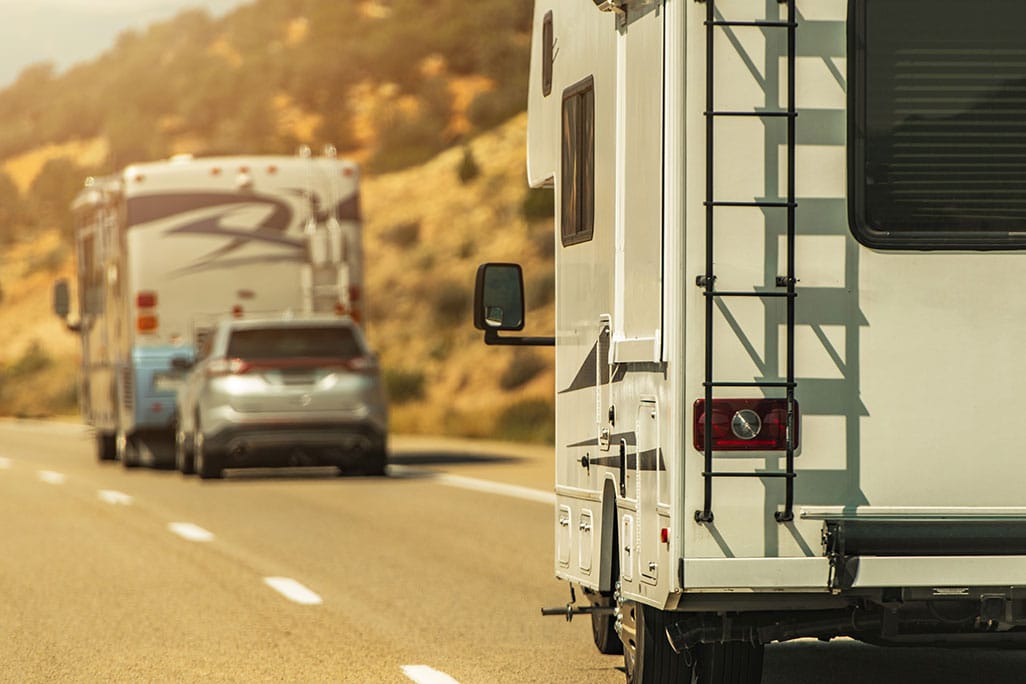RV living and RV travel is no less safe or no more disaster prone than living in a bricks-and-mortar home, but there are a few things to know. Whether in a long-term park or boondocking in the middle of nowhere, safety is paramount. If nothing else—and that’s not said lightly—COVID has brought safety to the front of everyone’s minds. RVs have specific differences that RV owners are familiar with, but a quick reminder might be useful.
Sooo, what can go wrong? Today we’re not talking about the most common and obvious cause of RV disasters: highways. Here is a great site addressing RV traffic accidents. This is not news to RV owners, so let’s talk about safety related to RV living: parking, boondocking, and camping in RV parks.
On the Record: maintenance is paramount to keep your RV safe.
The first preventive is a good maintenance plan performed regularly. Some RVers do a check before every change of location, others by the calendar. Whatever schedule you choose, basic check include the status of these:
- Lights: brake and tail lights, turn signals, headlights, even interior dash and driver’s lights
- Water or propane leaks
- Debris-free roof
- Engine fluid leaks or hose weaknesses (a regularly cleaned engine compartment make spotting leaks easier. Hot exhaust outlets plus fluids equal . . . well, you know what.)
- All battery charge levels, including in smoke and carbon monoxide detectors
- Tire pressure and wear
- Hookup connectors
- Slide-out or awning function
If you do end up in a repair shop, a spiral notebook, calendar, or computer spreadsheet maintenance record gives you and the mechanic a big leg up.
Park that Puppy: tips for stress-free RV parking
Modern RVs are a dream to drive, but they have to stop sometime. And you can’t always find the ideal wide entrance or straight bit to slide into. Someday, somewhere you are going to have to back this baby up. And park it.
Commercial truck drivers are taught the golden rule of parking a big rig known as G.O.A.L.
Get Out And Look. If you are alone in the RV, this might provide you a new exercise routine, so couples and families have it a bit easier. Some RVers use their cell phones, a walkie-talkie set or two-way headsets, but commercial drivers use a spotter with distinct hand signals.
And if you are single? Motion sensors and backup cameras on the newer RVs go a long way to making parking smoother. What if your RV lacks these amenities? One woman uses a set of battery-operated patio lights strung out like airport runway lights and tilts her mirrors just so. After she has checked for low branches or overhead obstacles, of course. This is an amazing help at twilight or after dark.
Where there’s smoke, act! Remember what your RV is made of.
RVs are built of lightweight, flammable materials on top of gasoline/diesel or propane tanks. A hot dragging brake, an electrical short, or too many paper towels near the stove and you can be facing flames in seconds. Two of the main causes of RV fires are the engine and—ready for this?—the refrigerator. Here are some suggestions—well, “rules” is a better word:
- Have a clear and well practiced escape plan with no less than two exits. Safety window operation must be part of the fire escape drill. Once out, have a meeting site and then stay out.
- Know your fire extinguishers. Dry chemical extinguisher are the most commonly used, but the chemical residue is toxic. A CO2 extinguisher works on all kinds of fires. Have at least three inside and be sure everyone knows their operation. Fire suppression systems can be indepenently installed as well.
- Every RV traveler should know how to unhook the electricity and close fuel valves such as for propane. Every family member should know how to unhook a trailer or 5th wheel unit.
- Carry a closed metal container for used fire materials, oil rags, charcoal briquettes, batteries, etc.
Breathe easy in your RV.
Carbon monoxide inside an RV has less volume to fill than in a large building. A detector is an essential safety device. Common symptoms of carbon monoxide poisoning are nausea, dizziness, confusion, headache and chest pain.
Prevention is key. The CDC has a practical list to remind RVers about what to watch for.
Additional Resources
Be assured that Riverbound Custom Storage and RV Park in Lake Havasu City, AZ, has been developed with safety and comfort in mind. Areas for sports and playgrounds are well-lit and clean. Along with an available mechanic, the VIP Concierge Service covers towing, fueling, and detailing. Set up a man-cave in an epoxy-floored unit. Riverbound has both indoor and outdoor storage units with a utility pedestal hookups and security alarms. Best of all, Riverbound’s community atmosphere provides a great place for a little downtime, but with so much to do—boating, offroading, hiking—when kicking back becomes a bit too quiet.


